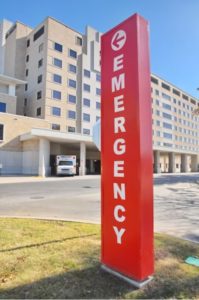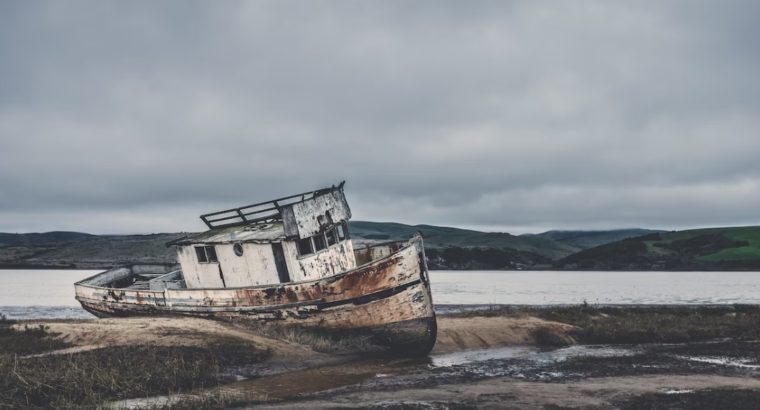Boating accident prevention measures and safety equipment on a Boat.
Boating is a pastime enjoyed by millions of people around the world. Whether it´s a leisurely
cruise on the lake, a fishing trip, or an adrenaline-pumping adventure on the high seas, boating
brings a sense of joy and relaxation. However, it is very important to be aware that accidents
can happen. For safe and enjoyable swimming, it is important to understand how to prevent
them and how to react in the event of an accident.
What Is a Boating Accident?
Any incident involving a boat that takes place on the water is referred to as a boating accident.
This covers mishaps involving passengers or water skiers, collisions between boats, collisions
with stationary objects, capsizing, grounding, sinking, flames, and explosions. Boating accidents
can occur on various bodies of water, including lakes, rivers, and seas.
Common Causes
Boating accidents are caused by a variety of circumstances, and preventing accidents requires
an awareness of these causes. Typical reasons include:
Operator inattention
Inexperienced operators
Excessive speed
Equipment failure
Navigation rule violations
Weather conditions
Alcohol and drug use
Improper lookout
Hazardous waters
Passenger behavior
Many accidents can be prevented by addressing these causes and implementing
appropriate safety measures.
Information and Trends
Understanding the numbers and patterns around boating mishaps will help us better
understand how common and severe they are. Recent statistics indicate:
Preventing Boating Accidents
When it comes to preventing watercraft accidents, prevention is crucial. Boaters can considerably lower
their risk of accidents by adhering to safety regulations and implementing best practices. Here are some
crucial actions to think about:
Training and Education
For boating to be safe, getting the required information and training is essential. Your abilities
and confidence on the water may be improved by comprehending navigational regulations,
learning about boating procedures, and gaining the necessary certifications.
Safety Tools and Appropriate Maintenance
The adoption of necessary safety equipment and proper boat maintenance are vital for
preventing accidents. Make sure your boat is regularly inspected, that all safety gear is in
excellent working condition, and that you are familiar with how to use things like life jackets,
fire extinguishers, and distress signals.
Weather Sensitivity
On the sea, weather conditions may change quickly, so it´s crucial to be aware of forecasts and
potential dangers. Before setting sail, keep an eye on weather updates, and if adverse
circumstances develop, think about delaying your boating vacation.
Abuse of Alcohol and Other Drugs
Alcohol or drug use while operating a boat is not only prohibited but also dramatically increases
the risk of accidents. It compromises your safety and the safety of others by impairing your
judgment, coordination, and response time. individuals on the water. Always select a sober
driver or stay off the water if you have had a drink or used drugs.
Right of Way and Navigation
The safety of all boaters depends on everyone understanding and following the navigational
regulations. To avoid mishaps, familiarize yourself with right-of-way rules, keep a vigilant
watch, and communicate clearly with other vessels. How to Respond in the Event of a Boating
Accident

What to Do in the Event of a Boating Accident
Despite your best efforts, accidents can still happen even when prevention is the aim. It´s
crucial to maintain your composure after a boating accident and take precise action to reduce
potential hazards. Here is a broad list of recommendations:
Quick Reactions
Always put everyone is safety first in the case of a boating disaster. If necessary, evaluate
injuries and give emergency medical assistance. Move to a safe area away from potential
threats like fire or sinking if it is safe to do so.
Notification of the Accident
As required by law, report the accident to the proper authorities. assemble pertinent data, such
as the date, time, and information about the event, the names and phone numbers of any
witnesses, and any relevant facts.
Legal Points to Consider
Legal issues can apply depending on how serious the accident was. Consult with legal experts to
comprehend your rights and obligations, particularly if there were casualties, property damage,
or injuries.
Evaluation and Support Following an Accident
It´s critical to assess the situation and determine any lessons or areas for development after a
boating disaster. To aid with the healing process, seek assistance from support groups,
insurance companies, or organizations that promote boating safety.
Accidents on boats may be painful and avoidable. Boaters may create a safer and more
accident-free environment by comprehending the reasons, taking preventative action, and
being aware of what to do in the case of an accident.
Frequently Asked Questions (FAQs)
FAQ 1: Are boating accidents common?
Answer: Boating accidents can occur, but with proper precautions, they can be
minimized. Awareness and adherence to boating safety guidelines are essential for
accident prevention.
FAQ 2: What are the most common causes of boating accidents?
Answer: Common causes include operator inattention, excessive speed, inexperience,
alcohol use, and navigation rule violations. Understanding and addressing these factors
can help prevent accidents.
FAQ 3: Is boating education necessary?
Answer: Boating education is highly recommended. It equips boaters with essential
knowledge about navigation rules, safety equipment, and emergency procedures,
reducing the risk of accidents.
FAQ 4: What should I do if I witness a boating accident?
Answer: If you witness a boating accident, prioritize the safety of those involved. Offer
assistance if possible, report the incident to authorities, and provide any relevant
information or statements as required.
FAQ 5: Can boating accidents result in legal consequences?
Answer: Depending on the circumstances, boating accidents can have legal
implications. Its important to consult with legal professionals to understand your rights
and obligations if you are involved in an accident.
